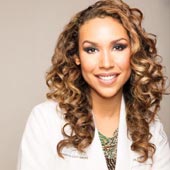Expert Self Care Skin Regimen For the Pandemic
The past year has seen a tremendous shift in patterns of using skin care and other cosmetic products. Given that we are spending a lot of our time at home, sales of makeup have gone down tremendously.
However, women are buying skin care products like never before, and taking this as an opportunity to enrich their skin care routine. Purchases of skin care natural products like moisturizer, cleanser, wrinkle creams, toner, eye creams, masks, night creams, and exfoliants have gone through the roof.
![coronavirus skincare]()
- Many people have jobs where they have to wear a mask all day long, and this can lead to skin care issues like chafing, irritation, and even acne. If you do get acne, cleanse your skin twice a day and use a good moisturizer. Do not touch or pick at the skin, as this can worsen the condition.
- Use a thin layer of zinc oxide on your skin as a protective barrier to prevent irritation. It can also soothe and treat existing chaffing and redness. When you get home and take off your mask, wash your skin with a good cleanser and add a potent moisturizer. Use high-quality skin care brands.

Mary Alice Nading Mina, MD, FAAD
Dr. Mina is a board-certified dermatologist and fellowship-trained Mohs surgeon practicing in Atlanta, Georgia. Specializing in skin cancer detection and treatment with Mohs surgery, Dr. Mina also enjoys performing cosmetic procedures to help patients look and feel their best. She is an adjunct assistant professor of dermatology at Emory University where she enjoys working with residents and teaching medical school students and is an active participant and speaker on dermatologic topics throughout the country.
Here are some tips to keep your skin blemish-free while wearing a mask!
- Cleanse your face daily with a mild cleanser and apply a fragrance-free moisturizer after washing.
- Skip make-up when wearing a mask as this skin is prone to developing clogged pores which lead to breakouts. If you must wear make-up, look for ‘non-comedogenic products.
- Wear a mask made from soft, breathable, natural fabrics such as cotton.
- Take frequent, safe mask breaks.
- Wash your cloth masks. This will remove germs as well as oils and skin cells that can lead to breakouts.

John DeNigris, M.D. F.A.A.D
Dermatologist at Yag-Howard Dermatology Center
Dr. John DeNigris is a Board Certified Dermatologist practicing at Yag-Howard Dermatology in Naples Florida. He was elected Chief Resident during his final year at the University of South Florida and graduated among the top 2% of his medical school class. With a history of success and recognition, Dr. John DeNigris exhibits keen diagnostic, surgical, and cosmetic skills. He takes pride in ensuring patients have their most healthy and beautiful skin whether treatments are topical or surgical.
1. "Maskne"
Maskne is a word used to describe an acne-like breakout on the face due to masks. The medical name is acne mechanica. There are many rashes on the face that are worsened by wearing a mask and some patients will also refer to these rashes as Maskne. Seborrheic dermatitis, rosacea, acne, and allergic contact dermatitis are the most frequent rashes worsened by wearing a mask. In general, a balanced skincare regimen and anti-acne medications are the first lines. Using a daily cleanser, such as the CeraVe hydrating cleanser, removed oils, dirt, and hydrates the skin. Hydrating the skin provides a barrier from the irritating effects of the mask. Topical retinoids help decrease inflammation, regulate oil production, and skin growth. Benzoyl peroxide and salicylic acid washes help clean out the pores, decrease bacterial growth and prevent pore-clogging. For rashes that do not improve with the above tips, an evaluation with a dermatologist would be important to rule out other causes.
2. Cracked and dry hands (Irritant Dermatitis)
COVID-19 has brought a lot of changes to our lives. We are all hyper-aware of the risk of transferring contagious diseases, which has lead to a marked increase in washing our hands and using hand sanitizers. Soaps, detergents, and hand sanitizers (most common alcohol) damage the skin and disrupt the skin barrier leading to cracked and dry hands. Once the skin on the hands breaks down, it becomes a vicious cycle that’s hard to break. The best way to correct the issue is to prevent the breakdown by moisturizing after washing your hands and using hand sanitizer. Once cracks and fissures occur vaseline becomes an important component of hand hydration. The healing can take a while, but the irritation should start improving within a week. For severe irritant dermatitis, topical prescription medications are sometimes necessary.
3. Get suspicious spots checked
We have seen a lot more invasive skin cancers since COVID-19 started. Many people have tried their best to avoid exposure to the virus at the guidance of medical experts, but this has lead to a delayed diagnosis of many dangerous skin conditions. If there is a spot that is growing, changing, or symptomatic it is always important to seek an expert opinion with a board-certified dermatologist to ensure that the area is not cancerous. Early detection and treatment is an essential component of why many skin cancers are fully curable.

Dr. Jennifer Rullan, M.D. F.A.A.D
Dermatologist at Dermatology Institute
I am a board-certified dermatologist and fellow of the American Academy of Dermatology. I lecture nationally and internationally regarding chemical peel and am work full time in private practice with my father in San Diego & Coronado, CA. I am passionate about helping people and I specialize in anti-aging, acne, acne scars, and medical dermatology.
I have seen over a thousand patients during the pandemic with mask-induced acne ("Maskne") and there are 4 main causes: wearing makeup, moisturizers, and sunscreen under masks and over-doing the supplements containing vitamin B6 & B12.
I recommend:
1 - avoiding makeup, moisturizers, and sunscreen UNDER the mask
2 - changing and washing your mask the same way you would underwear
3 - avoiding supplements with vitamin B6 & B12
4 - avoiding whey protein-based protein powders (instead use pea protein)
5 - only apply acne medicines or toners under your mask
6 - take zinc supplements to help your skin and also help protect you from viral infections

Hadley King, MD, FAAD
Board Certified Dermatologist based in New York City
The occlusive nature of a protective mask creates a humid and warm environment under the mask, which can lead to increased sebum and sweat. And this can lead to irritation, inflammation and breakouts.
I recommend washing the face before and after wearing a mask. A gentle foaming cleanser is adequate, or if your skin is particularly oily or acne-prone, consider a gentle exfoliating cleanser that contains salicylic acid. Salicylic acid can penetrate into pores and gently exfoliate and remove sebum. Salicylic acid is an excellent comedolytic, or pore-clearing, ingredient because it exfoliates the stratum corneum (the surface of the skin) and penetrates into pores to remove sebum. This helps to prevent pores from becoming clogged and can help remove clogs that have already formed.
Avoid heavy and potentially comedogenic products under the mask area, as well as potentially irritating ingredients. I would recommend no to minimal makeup under the mask, perhaps focus makeup more on areas that aren't covered by the mask-- like the eyes.
With all of the hand washing and alcohol-based hand sanitizer use, we are seeing a huge increase in cases of hand dermatitis. If the skin on your hands is getting dry and irritated, don't stop washing and sanitizing, but here are some tips:
1 - It's fine to use a hand sanitizer that contains moisturizers as long as the alcohol content is at least 60%.
2 - It's fine to use a gentle soap as long as you wash your hands for at least 20 seconds. It doesn't matter what soap you use-- it's the combination of soap plus mechanical disruption that works to rid hands of the virus. There is no advantage to using antibacterial soap.
3 - Detergents can strip the skin of oils and lead to dryness and irritation, but water alone is enough to dry out the skin as well. This may sound counterintuitive but water, especially hot water, can dry out the skin. Use lukewarm water and minimize the time and frequency in the water as much as possible.
4 - Immediately after you've sanitized or washed, before your hands have dried, apply a moisturizer to help lock in the moisture.

Mara Weinstein Velez MD, FAAD
Board-Certified Dermatologist
Mara C. Weinstein Velez, MD, FAAD., is a Board-Certified Dermatologist and Fellowship-Trained Laser and Cosmetic Surgeon in Upstate New York. She is a Skin Expert @hautebeautynetwork, Nationally Renowned speaker and educator and voted Top Doc Rochester, NY. Dr. Weinstein’s passion for healing, artistry, beauty and psychology allows her to connect with her patients, instilling trust and confidence to bring out their best self!
1 - Face care - by now you've all heard about maskne - small bumps that can form on your skin in the area under the mask due to friction and moisture. This creates a nice environment for yeast and bacteria to collect, leading to clogged pores and acne bumps. The best way to avoid maske is to wash your face daily with a gentle cleanser in the morning, then apply a lightweight, non-pore clogging facial moisturizer with SPF 30 or higher. Avoid wearing make up or heavy foundation in the area under your mask. Remember to change your mask daily!
2 - Hand care - As a board-certified dermatologist, I've definitely seen an increase in the number of patients coming in with dry, cracked hands from frequent hand-washing and sanitizing. If you have sensitive skin and maybe a history of eczema, it's especially important to try your best to avoid hand sanitizers and stick to soap and water (remembering the 20 second rule of washing!). Sanitizers are alcohol based and will strip your skin of its natural oils and cause irritation in sensitive skin. After washing, its a good idea to apply a hand cream immediately every time. I like to keep a small tube of cream in my pocket or at my desk. For very dry cracked hands, you can apply a thicker moisturizer at bedtime followed by a thick emollient like Vaseline or aquaphor to seal in the moisture, and then cover the hands with cotton gloves to sleep!
3 - Skin Checks - Despite not being able to go out and do all the things we normally do, our skin is still changing everyday! Check your skin for changing moles and new spots once a month!

Angela Tewari
Consultant Dermatologist, PhD in UVR and Environmental Dermatology
Consultant Dermatologist at King’s College Hospital specialising in Paediatric Dermatology, Contact Dermatitis and dealing with concerns affecting the hair, skin and nails.
In terms of skin, the recent pandemic makes me think of being indoors, particularly this winter with the heating on and an accumulation of dry, low humidity air. This makes our skin prone to dry lips and dry skin. So here are a few tips to help with this now that the light at the end of the tunnel is emerging!
- For dry lips, the American Society of Dermatology suggests avoiding a certain number of products however I advocate this as once your lips are irritated by the cold, dry weather you need to take away that sensation that promotes the contact lip licking and then saliva irritation. So I like a lip sealant like Vaseline or nivea stick balm (primarily petroleum based) but also Carmex that contains camphor and menthol. If your lips get itchier with these, do stop but I think this is a great start.
- For dry skin, do consider thicker emollients that contain urea - consider Eucerin, QV and CeraVe have a few new winter warmers out there.
- If you are eczema prone consider a humidifier in the house but do also see a dermatologist to get prescription based suggestions for your skin.

Steven Krueger
MD
Dr. Steven Krueger is a resident dermatologist in Massachusetts with a passion for educating the public and medical trainees about healthy skin practices!
Tips - 1. Fight “maskne” with a benzoyl peroxide wash every morning. Be aware that BP products can bleach fabric (use white towels!), and higher strengths (up to 10%) may cause dryness and irritation. I use a 2.5% product by AcneFree ($7/bottle).
2. Use a daily moisturizer to keep skin hydrated, especially during cold winter months. I recommend CeraVe moisturizing lotion ($17/bottle) as a great choice for oily skin types. If your product does not contain sunscreen (SPF 30 or above), you’ll need to add a physical or chemical UV blocker to your routine. Remember that daily sunscreen fights skin aging and prevents skin cancer!
3. Apply a thin layer of retinoid to the entire face and neck at night to reduce fine lines, improve skin discoloration, and build collagen. I recommend a prescription-strength tretinoin cream or the slightly weaker adapalene over expensive over-the-counter retinol-containing products. Discuss these topicals with your doctor if you are planning to become pregnant.

Jennifer Trent
MD FAAD
Bio - Jennifer Trent, MD completed a 6 year combined BS-MD at the University of Miami with an undergraduate major in biology and a minor in chemistry. While in medical school, she interrupted her formal course to participate in a 2-year research fellowship in dermatology at the University of Miami. The focus of her work was hospital care of dermatology patients, toxic epidermal necrolysis, and wound care. Dr. Trent graduated from Medical School with research distinction as well as the University of Miami Department of Dermatology’s medical student of the year award.
She completed her internship in internal medicine and her residency in dermatology and Cutaneous Surgery at the University of Miami/Jackson Memorial Hospital. Dr. Trent has presented her research on toxic epidermal necrolysis and methicillin-resistant Staphylococcus aureus several times at the Society of Investigative Dermatology and the annual American Academy of Dermatology meetings. She was the recipient of the Celia and Samuel Resnik Award for dermatology research from the University of Miami Department of Dermatology and the prestigious Young Investigators award for research from the American Academy of Dermatology for her work on toxic epidermal necrolysis. Dr. Trent has also received several awards for teaching from the University of Miami Department of Dermatology.
Dr. Jennifer Trent is a world-recognized dermatologist, who has published over 40 articles in peer-reviewed journals and 6 chapters in various dermatologic textbooks on surgery and wound care. She also co-authored a textbook on dermatologic diseases and therapy, which was published by McGraw-Hill Co., Inc. She has been interviewed by the American Academy of Dermatology’s Dialogues in Dermatology. Dr. Trent has served on several committees at Doctor’s Hospital of Sarasota and for American Society for Dermatologic Surgery and on the Sarasota Board of the American Cancer Society. She is currently Medical Director of American Dermatology Associates Inc and voluntary Assistant Professor of Dermatology at the University of Miami.
Tips - COVID 19 has taken its toll on our personal, social and professional lives. But one unforeseen consequence is how it has negatively impacted our skin. Here are some tips to help you get through this without damaging your skin.
1. Dry hands - With all our hand washing, our skin has become dry and irritated. Make sure you wash with lukewarm water (not hot water), use mild non-antibacterial soaps, wash gently (do not scrub), dry with a clean towel, and apply a thick moisturizing cream that does not contain dyes or fragrances. You can even put Vaseline petroleum jelly on your hands at night and cover with white cotton gloves. Use vinyl or nitrile gloves (not latex) when cleaning in order to protect your skin from the chemicals. Try to avoid hand sanitizer and use only when soap and water are not available. Follow with moisturizer.
2. Irritated face - Masks are great protection, but they can also irritate the skin. Keep skin clean with mild soaps and use non-comedogenic moisturizers. Zinc oxide is a great protective barrier cream that you can apply after washing your face to protect from mask irritation. Some hydrogel bandages can help protect the skin as well.
3. Maskne - Masks occlude the skin and can lead to acne breakouts. Make sure you wash your face twice a day, and use non-comedogenic moisturizers. You may need an acne wash, such as salicylic acid or benzoyl peroxide, to combat acne. Make sure you use a clean mask every day. Do not wear makeup under your mask. If you sweat in your mask, wash your face and put on a clean mask. If you are pregnant or nursing or planning on becoming pregnant, consult with your obstetrician/gynecologist or dermatologist before starting any acne regimen.
If your acne or dry irritated skin does not get better, consult with a board certified dermatologist.

Brenda Pellicane
Board Certified Dermatologist
Board certified dermatologist with extensive training in cosmetic dermatology, cutaneous laser surgery and hair restoration.
1. Hydrate your hands – increased hand washing and use of hand sanitizers can dry out the skin resulting in redness, peeling, cracking and itching. It is important to moisturize your hands routinely, especially just after washing. Choose a thick cream or an ointment which are more moisturizing and have more staying power.
2. Start a retinol – Retinol is a tried and true anti-aging product. Initial use often causes dry, flakey and sensitive skin which can be embarrassing and annoying, causing patients to discontinue using it. Take advantage of more time at home and the ability to cover the skin by wearing a mask to get through this initial phase as your skin gets used to the retinol. It is important to focus on at-home anti-aging treatments since our ability to get to the dermatologist for lasers, peels and neurotoxin has been limited by the pandemic.
3. Prevent "Maskne" – Daily use of masks occludes the skin and can cause oil, dirt and make up to build up causing irritation and acne in the area. Be sure to change your mask often. It is important to cleanse the skin once or twice daily with a gentle cleanser. For patients prone to acne, I recommend gentle exfoliation 2-3 times per week. One of my favorite products is SkinBetter Detoxifying Scrub Mask.

Dr. Glenn Kolansky
Board Certified Dermatologist
Board certified dermatologist- discussed acne under the mask on inside edition and for an article on CNN. Dr. Glenn Kolansky is a fellowship trained, board certified Mohs surgeon with a passion for excellence in dermatology and healthy, beautiful skin.
- Wash your face before and after wearing a mask.
- Use an oil free moisturizer.
- Avoid make-up under the mask.

H.L. Greenberg
M.D. FAAD
Bio - Founder of Las Vegas Dermatology and Board Certified Dermatologist, Dr. Greenberg also completed a Residency in Internal Medicine and he is 1/2 of The DermBros. Educational videos about all things dermatology can be found at https://www.youtube.com/lvderm
- Practice good hand hygiene. Every time you wash your hands, moisturize them. Whether you are using hand sanitizer or soap, when you wash your hands, you are removing the lipid layer that keeps moisture in.
- Don't touch the portion of your mask that covers your mouth, instead use the ear straps to adjust your mask. If you touch your mask, you should probably hand sanitize before touching anything else.
- You should also wash and moisturize your face twice daily - if your mask is dirty, that's from your face and it's sitting on your face, so keep your face and mask clean. Wash your mask daily if it's made of fabric or use a new mask every day if it is a disposable mask.

Raechele Cochran Gathers
Board Certified Dermatologist
Raechele Cochran Gathers, MD is a board certified dermatologist, skin of color expert, author and founder of the health and beauty website MDhairmixtress.com.
1. Moisturize hands after every wash. As a general rule, ointments or creams are better than lotions at providing protection for extra dry and over-washed hands.
2. Use warm water to wash your hands, not hot. The important thing is washing your hands with soap and water for 20 seconds. You don’t have to scald yourself to kill the germs on your hands!
3. Use fragrance free and dye free hand moisturizers. Fragrances and dyes may increase your risk for skin irritation. Look for products that are hypoallergenic and clearly say that they are fragrance free.

Dr. Cristina Rodriguez-Garcia
Consultant Dermatologist - Founder and Medical Director at Skin Inspection
Dr Cristina Rodriguez-Garcia graduated from medical school in Spain, where she undertook specialist training in dermatology and completed her PhD. She is actively involved in continuous research in collaboration with prestigious international experts.
Dr Rodriguez-Garcia has special interest in Dermoscopy for skin cancer diagnosis.
She has been working in the UK since 2012 and is on the GMC Specialist Register. Dr Rodriguez-Garcia holds a substantive NHS Consultant Dermatologist post at Buckinghamshire Healthcare NHS Trust, where she is also the Clinical Governance lead for medical Dermatology. In addition, she is Tutor in Dermatology Diploma MSc at University of South Wales.
She has authored publications in high impact peer-reviewed dermatology journals, such as the British Journal of Dermatology and the Journal of the American Academy of Dermatology. She has presented her research in international congresses and is a peer-reviewer for medical journals.
Dr Rodriguez-Garcia is a member of the International Dermoscopy Society, the British Association of Dermatologists, the European Academy of Dermatology and Venereology and the Royal Society of Medicine.
1. Use Moisturizer for your hands.
2. Use hand gel more often than soap.
3. Barrier cream to protect the face from the PPE.




















 This article changed my life!
This article changed my life!
 This article was informative.
This article was informative.
 I have a medical question.
I have a medical question.

 This article contains incorrect information.
This article contains incorrect information.
 This article doesn’t have the information I’m looking for.
This article doesn’t have the information I’m looking for.